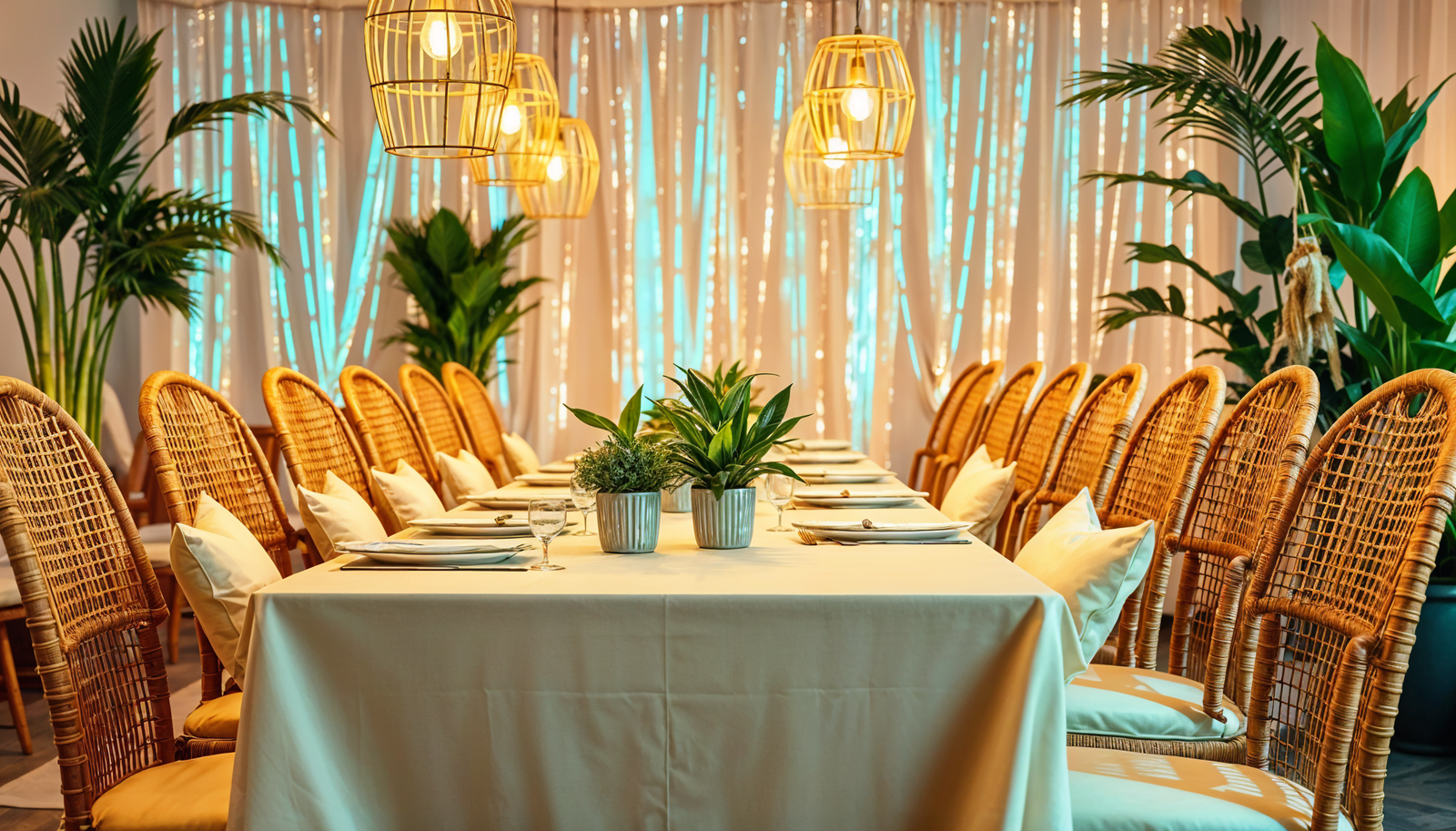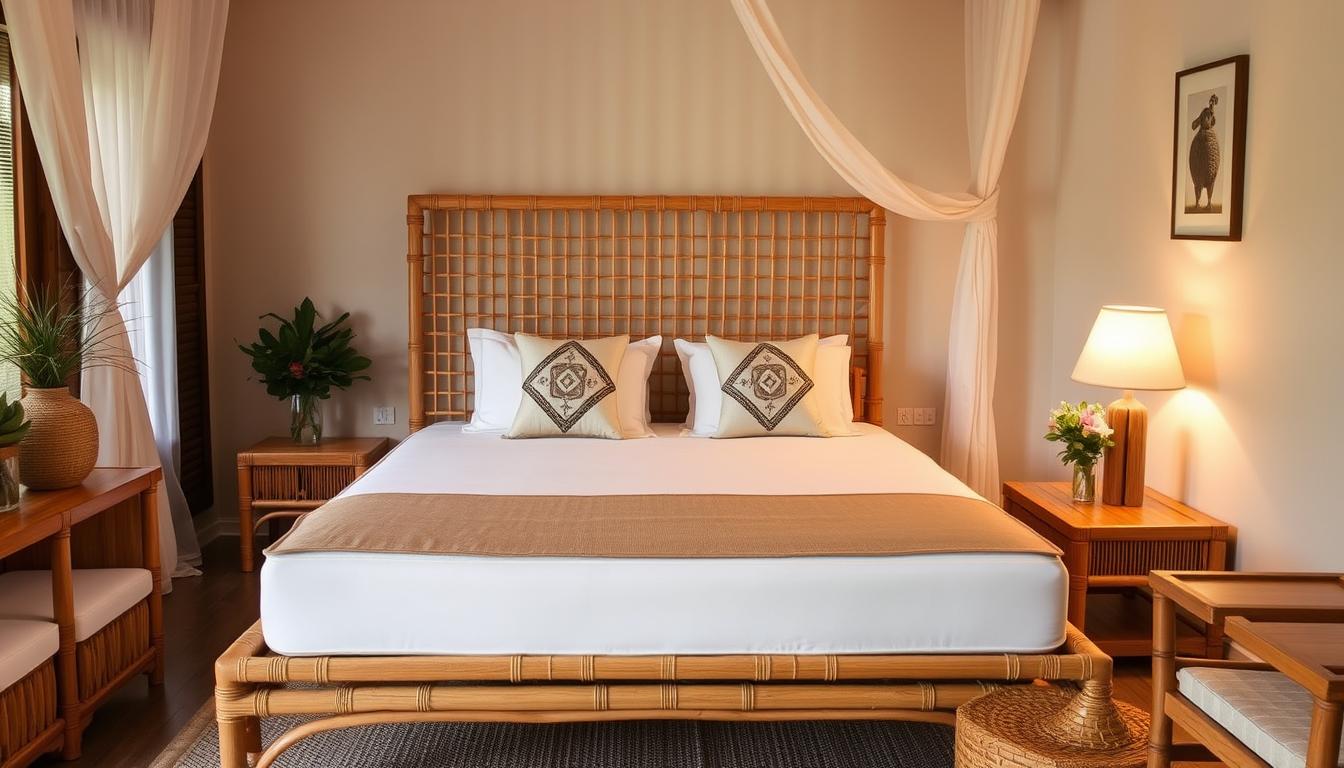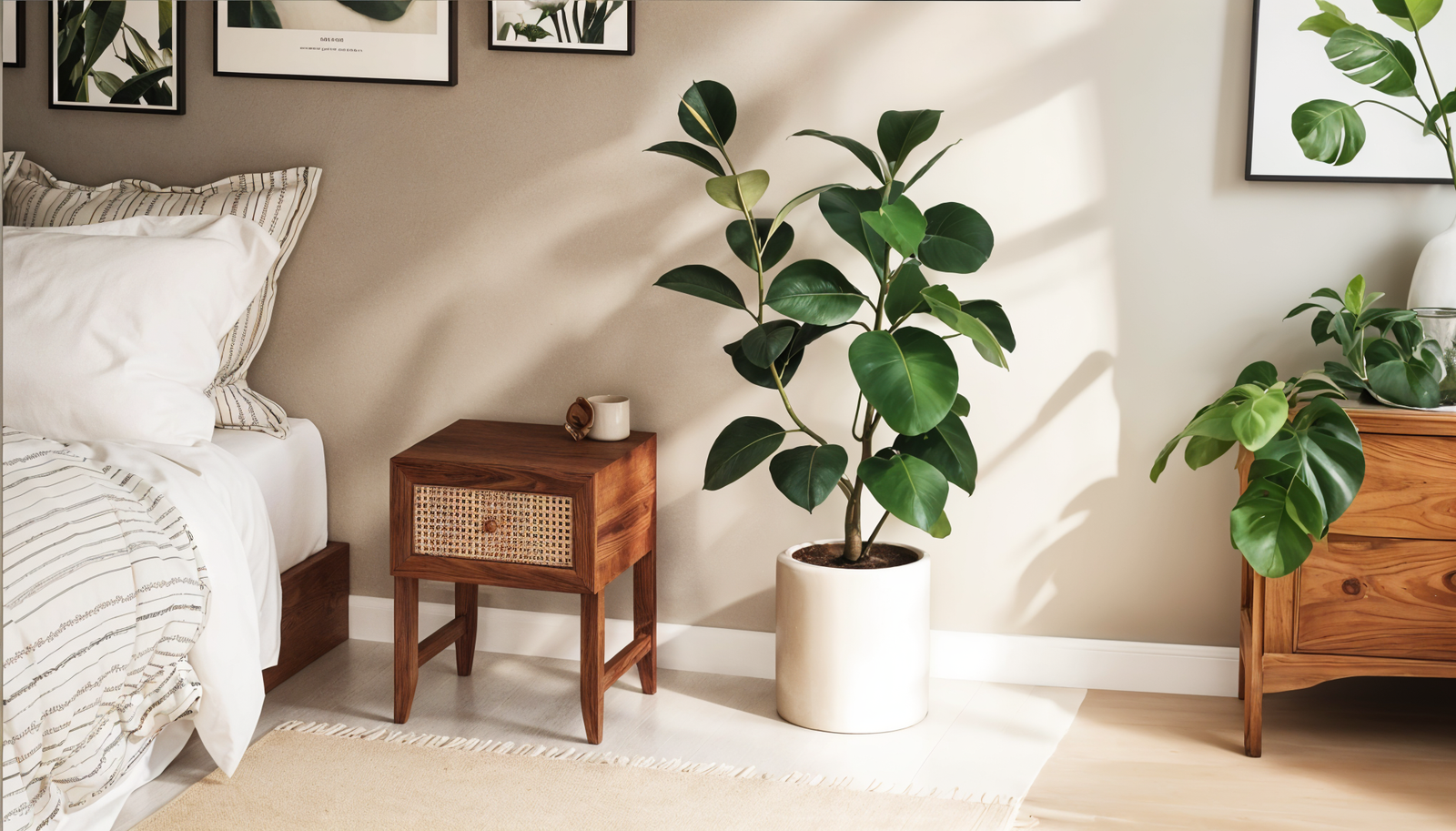🤍 Unmatched Quality, Authentic Craftsmanship
🤍 Unmatched Quality, Authentic Craftsmanship
🤍 Unmatched Quality, Authentic Craftsmanship
When it comes to choosing beautiful pieces of furniture or building materials, strength is an important factor to consider.
Bamboo and wicker are two popular materials known for their durability and versatility.
The difference between bamboo and wicker is that bamboo is a natural grass, while wicker is woven from any type of material, such as wood, rattan, or synthetic materials.
So, you may be wondering, which one is stronger, bamboo or wicker?

In this comprehensive guide, we will delve into the characteristics of both bamboo and wicker, exploring their inherent strengths and weaknesses.
By understanding the physical properties and construction methods of each material, you will be able to make an informed decision when it comes to selecting the strongest option for your needs.
Whether you're looking for sturdy furniture that can withstand heavy use or materials for construction projects, this guide will provide you with the knowledge you need to determine whether bamboo or wicker is the better choice.
So, let's dive in and uncover the strength behind bamboo and wicker.
When it comes to comparing bamboo and wicker, one of the most important factors is understanding their respective properties.
This includes looking at aspects such as:
Let's explore these one by one.

Bamboo is a type of grass that is native to Asia, mainly Southeast Asia, and grows in tropical climates.
It is one of the fastest-growing plants on the planet, with some species growing up to 48 inches per day and reaching up to 20 feet tall.
It is also a highly renewable resource, as it grows rapidly and can be harvested for use without damaging the environment.
It is an incredibly strong material, with some varieties boasting tensile strength equal to or higher than steel.
The color of bamboo varies depending on the species, but it is typically a light yellow or golden hue.
Bamboo plant also has excellent resistance to compression, making it an ideal material for furniture and construction projects.
Bamboo material has high levels of moisture content, which helps to make it resistant to insect damage and rot.
It is also very lightweight, making it easy to maneuver and transport.

Wicker is a type of weaving usually made with natural materials such as rattan, willow, or bamboo.
It is a very lightweight material that can be molded and shaped into various attractive shapes and sizes.
It has a natural color that can be easily changed with paint or stains, making it a very attractive material.
Wicker is also incredibly durable and resistant to wear and tear, making it an ideal material for furniture products that are frequently used.
When comparing the strength and durability of bamboo and wicker, it is clear that both materials have their advantages.
Bamboo is incredibly strong, with some varieties boasting tensile strength equal to or higher than steel.
It also has excellent resistance to compression, making it an ideal choice for furniture and construction projects.
Additionally, bamboo has high levels of moisture content, which helps to make it resistant to insect damage and rot.
Additionally, wicker is recognized for its exceptional durability and resistance to wear and tear, making it an excellent choice for frequently used outdoor furniture.
It is also very lightweight, which makes it easy to maneuver and transport.
However, wicker is not as strong as bamboo and may not be suitable for certain applications.
Now that we have explored the properties of each material, let's take a look at the applications and uses of bamboo and wicker.
Bamboo and wicker are both incredibly versatile materials that can be used in a variety of applications.
Let's discuss these in detail.

Bamboo is an incredibly versatile material that can be used in a variety of applications.
In construction, bamboo can be used as a building material for both indoor and outdoor structures.
It is an excellent choice due to its strength and lightweight properties, making it easy to manipulate and transport.
Bamboo is also an excellent material for any type of furniture due to its resistance to wear and tear and insect damage.
It is also a popular choice for crafts such as decorative items, bamboo baskets, and sculptures.
Some of the popular bamboo products include bamboo tables, bamboo cutting boards, bamboo beds, bamboo utensils, bamboo flooring, bamboo wall decor, bamboo poles, and bamboo blinds.

Wicker is an incredibly versatile material that can be used in a variety of applications.
It is a popular choice for furniture due to its lightweight and moldable properties.
Wicker is also resistant to wear and tear, making it ideal for frequently used furniture pieces.
Additionally, wicker is a popular choice for everyday items, wicker baskets, and home decor, as it adds both texture and warmth to any space.
When discussing the suitability of bamboo and wicker for different purposes based on their strengths, it is important to consider the specific application and requirements.
Bamboo is an incredibly strong material, with some varieties boasting tensile strength equal to or higher than steel.
This makes it an ideal choice for construction projects as well as furniture that requires strength and durability.
On the other hand, wicker is not as strong as bamboo. However, it is still an excellent choice for furniture and crafts due to its lightweight and moldable properties.
In the next section, we will discuss the factors that influence the strength and durability of both wicker and bamboo.
There are a number of factors that influence the strength and durability of both wicker and bamboo.
The type of material used, weaving techniques, and environmental conditions can have a significant impact on the strength and durability of these materials.
The quality of the material is paramount to the strength and durability of both bamboo and wicker.
Bamboo can be found in a variety of grades, with the highest grade being ideal for furniture and construction applications due to its strength and resistance to wear and tear.
Wicker, on the other hand, should be made from high-quality materials that are specifically designed for use in furniture.
Additionally, high-quality wicker should be treated with a finish to ensure maximum strength and durability.
The weaving process of wicker and bamboo is an important factor in determining the strength and durability of these materials.
Bamboo must be woven in a tight, uniform manner to ensure maximum strength and durability.
Wicker, on the other hand, should be woven using a special technique known as “twisted weave,” which ensures that all strands are tightly interwoven for added strength.
Maintenance and environmental factors also play an important role in the strength and durability of both bamboo and wicker.
To ensure their longevity, both materials must be properly maintained by cleaning them regularly to remove dirt and dust.
Bamboo comes from sustainable material sources, making it a more environmentally conscious choice than wicker.
Additionally, they should be stored in a dry area away from direct sunlight and extreme temperatures, as exposure to these elements can cause them to weaken over time.
Furthermore, exposure to these elements may potentially impact the integrity and longevity of bamboo.
In terms of sustainable options and eco-friendly nature, bamboo is the clear winner here.
We have tried to cover everything so far to help you better understand which type of material is stronger, bamboo or wicker.
Let us explore some of the most commonly asked questions to clear your doubts, if any.
After going through all the information provided above, you may still have some lingering questions about the strength of bamboo and wicker.
In this section, we aim to answer some of the frequently asked questions on this topic to help you gain a better understanding.
So, let's dive into it!
Yes, wicker furniture can be as strong as bamboo furniture when made with high-quality materials and weaving techniques.
Wicker is a versatile material that can be woven in a wide variety to produce strong and durable pieces.
The strength and durability of the wicker furniture depend on the quality of the actual material used as well as the type of weave.
High-quality wicker made with a tight, twisted weave will be just as strong as bamboo furniture.
In the context of a curated design, either wicker or bamboo can be a great choice.
It really depends on what type of look and feel you’re going for in your space.
Bamboo is strong and durable and has a natural look that suits many types of furniture styles, i.e., contemporary style, modern boho style, etc.
Wicker is lightweight, moldable, and has a more delicate appearance, which can add texture to an interior space.
In terms of the variety of color options, wicker offers more variety than bamboo.
Ultimately, the choice between wicker and bamboo will come down to personal preference.
Yes, the type of wicker used can have an effect on its strength compared to bamboo.
Natural wicker is generally considered to be weaker than synthetic wicker due to its susceptibility to mold and mildew, as well as other environmental factors.
Additionally, natural wicker may not be able to withstand higher levels of wear and tear when compared to bamboo.
Synthetic wickers are typically more durable and resistant to environmental factors, making them a better choice if you’re looking for something that will last.
Rattan is a type of tropical vine that grows in South East Asia & Africa, and other regions with a tropical climate. They belong to the same palm family of tropical palm trees.
The rattan plant is made from the same species of trees as bamboo and wicker, but it has a different look and feel due to its core structure.
Rattan furniture is made up of thin, flexible rods that are woven together in various patterns to form furniture pieces.
This weaving process makes it a more flexible and lightweight material than wicker or bamboo, although it is not necessarily stronger than either of them.
In terms of strength, bamboo is typically the strongest of the three materials.
When it comes to outdoor furniture, bamboo is often a better choice than wicker. This is primarily due to its natural water-resistant properties.
Bamboo can withstand different types of weather conditions, i.e., cold weather, dry weather, and bright sunlight, without succumbing to rot or mold, which can be a problem with wicker furniture that’s left out in the elements for too long.
Additionally, bamboo is also much more durable and long-lasting than wicker, making it a better option for outdoor furniture.
For indoor furniture, wicker might be a better option, as it can add texture and aesthetic appeal to your space.
The best way to clean and maintain both wicker and bamboo furniture is to vacuum it regularly using a soft brush attachment. This will help remove dust, dirt, and other debris from the material.
For stains, you can use a mild soapy water solution on a damp cloth and gently scrub the affected area. Make sure to dry thoroughly afterward to prevent mold or mildew.
Finally, for bamboo furniture, you may want to apply a protective coating or sealant every few years in order to keep it looking its best and protected from the elements.
When comparing the strength of bamboo and wicker, it is important to consider various factors such as the quality of materials, construction techniques, and intended use.
While bamboo is generally considered to be stronger and more durable than wicker, it is essential to choose high-quality wicker products or furniture made from bamboo for optimal strength and longevity.
Additionally, proper maintenance and care can significantly enhance the lifespan of both bamboo and wicker items.
By understanding the characteristics and limitations of each material, you can make informed decisions when it comes to choosing between bamboo and wicker for your specific needs.


